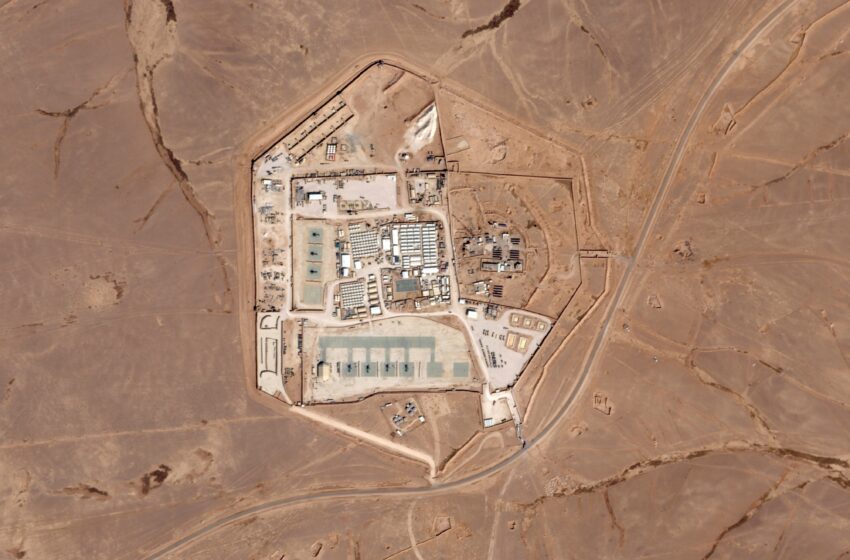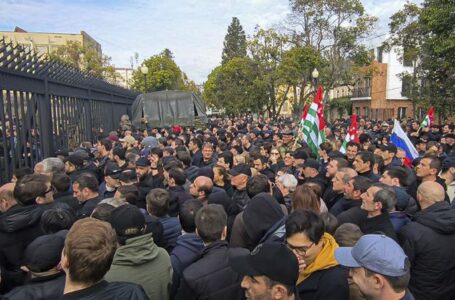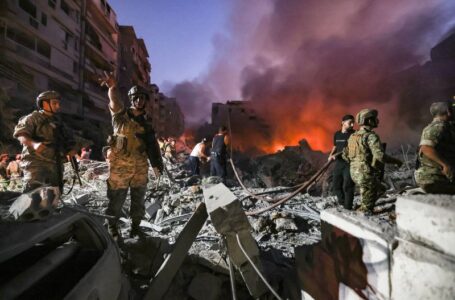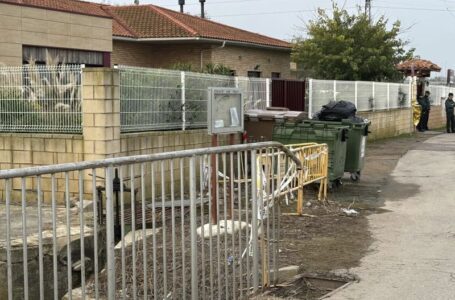Protesters storm parliament in breakaway Georgia region of Abkhazia over Russia deal
U.S. troops killed, wounded in Jordan attack blamed on Iranian proxies


Three U.S. troops were killed and at least 34 injured in a militant drone attack Sunday in Jordan, officials said, marking the first deadly military action against American service members since the war in Gaza triggered a steep rise in violence throughout the Middle East.
President Biden blamed the attack on groups supported by Iran, and the incident raised immediate questions about when, where and how forcefully the United Statesmight respond. In a statement, he said the United States will “hold those responsible to account at a time and in a manner of our choosing.”
As the number of attacks on deployed American personnel has surged to more than 160 since October, the Pentagon has carried out selective retaliatory strikes against Iranian proxies in Iraq, Syria and Yemen. But to the frustration of many in Washington, those actions have failed to deter the groups perpetrating the violence, and the president’s critics seized on this development to intensify their demands for more aggressive countermeasures.
Sunday’s attack targeted a facility known as Tower 22. The base, which houses about 350 U.S. troops, is located in northeast Jordan along the country’s shared borders with Syria and Iraq. A U.S. defense official said the one-way drone struck the base’s living quarters, causing injuries that ranged from cuts and bruises to brain trauma.
It was not immediately clear from which country the attack was launched, said the official, who like some others spoke on the condition of anonymity to describe the incident. Military commanders are working to determine that information and, crucially, why U.S. air defenses failed to intercept the drone.
Some of the wounded personnel required medical evacuation, the official said. The identities of those slain were not disclosed, pending family notifications. Biden, in his statement, called them “patriots in the highest sense.”
Sunday’s bloodshed spotlighted Jordan’s attempt to walk a tenuous line as many in the Arab world, outraged by Israel’s punishing assault on Gaza, have faulted the United States for its unconditional backing of the Jewish state despite the war’s enormous civilian toll. The kingdom has continued to partner with the United States on counterterrorism while looking to avoid the wrath of Iran and other regional neighbors. On Sunday, despite the U.S. government’s disclosure about where the attack occurred, Jordanian officials claimed it was another U.S. base in the region — one located on the Syrian side of the border — that was targeted.
The defense official characterized operations at Tower 22 vaguely, saying the Americans deployed there are on an advise-and-assist mission.
The Islamic Resistance in Iraq, an umbrella group that includes Kataib Hezbollah, Harakat Hezbollah al-Nujaba and other Iranian-backed militants, claimed responsibility for the attack, according to a senior official with the organization who spoke to The Washington Post on the condition of anonymity in accordance with its rules.
“As we said before, if the U.S. keeps supporting Israel, there will be escalations. All the U.S. interests in the region are legitimate targets and we don’t care about U.S. threats to respond, we know the direction we are taking and martyrdom is our prize,” the Islamic Resistance in Iraq official said.
The group is a front for Iranian-backed militias there. Its forces began targeting U.S. interests in 2018, after then-President Donald Trump withdrew the United States from a landmark nuclear deal with Tehran.
There are about 2,500 U.S. troops deployed in Iraq and another 900 in Syria. They have been focused on preventing a resurgence of the Islamic State, the terrorist network that took over large swaths of both countries until a U.S.-led military campaign left the group decimated. Last week, amid deepening strain between the U.S. and Iraqi governments, the Pentagon signaled its openness to reducing the American military presence there.
Friction between the two countries has worsened in recent weeks, as U.S. forces have fought back against the rise in Iranian proxy attacks. On Jan. 4, the Biden administration launched a rare retaliatory strike on a base belonging to a militia in central Baghdad, killing the group’s commander. American officials said at the time that it was hoped the strike would serve as a deterrent against further hostility toward U.S. troops. Instead, the attacks have grown more ambitious.
Iran hawks in Congress leveraged Sunday’s attack to amplify their criticism of Biden and his management of the Gaza-related spillover violence that has left much of the Middle East on edge. Senate Minority Leader Mitch McConnell (R-Ky.) implored the administration to impose “serious crippling costs” on Iran and its proxies.
“The time to start taking this aggression seriously,” McConnell said, “was long before more brave Americans lost their lives.”
Sen. Lindsey Graham (R-S.C.) said the president’s strategy for deterring escalation had “failed miserably.” He called for striking “targets of significance inside Iran” — a prospect that many national security experts fear would draw the United States into a cataclysmic war.
“The only thing the Iranian regime understands is force,” Graham said. “Until they pay a price with their infrastructure and their personnel, the attacks on U.S. troops will continue.”
Iran’s mission to the United Nations did not immediately respond to a request for comment.
A total of five U.S. troops have died since violence in the Middle East widened with Israel’s invasion of Gaza. Two Navy SEALs were lost in an accident earlier this month while on a mission to interdict Iranian weapons components bound for Yemen, where militants continue to target commercial and military vessels off the Arabian Peninsula.
As the SEALs attempted to board a boat suspected of carrying illicit arms, one of them slipped and fell from a ladder and the other jumped into the strong waves to help, officials have said. They were declared dead days later following an expansive search mission.
Missy Ryan in Washington, Mustafa Salim in Baghdad and Louisa Loveluck in Jerusalem contributed to this report.











